Electrolytes play a vital role in keeping our bodies functioning efficiently. They help regulate nerve and muscle function, maintain fluid balance, and support other essential bodily processes. If you've ever felt drained after a workout or experienced muscle cramps, chances are your electrolyte levels were out of sync. This hydration guide will provide an in-depth look at what electrolytes are, their benefits, and how to maintain optimal hydration for better health.
Understanding Electrolytes
Electrolytes are minerals that dissolve in bodily fluids and carry an electric charge. These charged particles are essential for many physiological functions, including muscle contractions, nerve signaling, and maintaining blood pH levels. The primary electrolytes in the human body include:
- Sodium (Na+): Helps regulate fluid balance and supports nerve signaling.
- Potassium (K+): Essential for muscle contractions and heart function.
- Calcium (Ca2+): Plays a role in bone health, muscle contractions, and nerve function.
- Magnesium (Mg2+): Aids in energy production and muscle relaxation.
- Chloride (Cl-): Helps maintain fluid balance and proper digestion.
- Phosphate (PO4-): Supports energy storage and cell function.
Without adequate electrolyte levels, your body struggles to function correctly, leading to dehydration, muscle weakness, and imbalances that can impact overall health.
Why Electrolytes Matter for Hydration
Maintaining optimal hydration isn’t just about drinking enough water—it’s also about ensuring the right balance of electrolytes. When you sweat, urinate, or even breathe, your body loses fluids along with essential minerals. If you replenish only with water, you risk diluting your body's electrolyte levels, potentially leading to hyponatremia, a dangerous condition where sodium levels drop too low.
Proper electrolyte balance ensures that cells receive enough water while preventing excessive fluid retention. Studies show that an electrolyte-infused beverage can rehydrate the body up to 40% more effectively than water alone.
How Dehydration Affects the Body
Dehydration occurs when the body loses more fluids than it takes in. Even mild dehydration can significantly impact performance, mood, and overall health. Some common symptoms include:
- Increased thirst
- Fatigue and dizziness
- Dry mouth and skin
- Muscle cramps
- Headaches
- Reduced cognitive function
Research indicates that losing just 2% of body water can reduce physical performance and cognitive abilities. Severe dehydration, on the other hand, can lead to heatstroke, organ failure, and even death.
Sources of Electrolytes
A balanced diet typically provides sufficient electrolytes for most people. However, athletes, individuals recovering from illness, or those in hot climates may require additional intake. Here are some of the best natural sources of electrolytes:
- Sodium: Table salt, seaweed, and canned soups
- Potassium: Bananas, spinach, and sweet potatoes
- Calcium: Dairy products, almonds, and leafy greens
- Magnesium: Nuts, whole grains, and dark chocolate
- Chloride: Table salt, tomatoes, and celery
- Phosphate: Meat, fish, and dairy products
Many sports drinks and hydration supplements also contain electrolytes, but it’s essential to choose those with a proper balance and minimal added sugars.
Electrolyte Imbalance: Causes and Effects
Electrolyte imbalances occur when the levels of these essential minerals become too high or too low. Some common causes include:
- Excessive sweating (without proper replenishment)
- Vomiting or diarrhea (common in illnesses or food poisoning)
- Kidney disease (which can affect electrolyte regulation)
- Certain medications (such as diuretics that remove fluids from the body)
Symptoms of an imbalance can range from mild (fatigue and nausea) to severe (irregular heartbeat and seizures). Addressing imbalances promptly with hydration solutions or dietary adjustments is crucial for maintaining optimal hydration.

Electrolytes and Athletic Performance
For athletes, electrolyte balance is crucial for endurance, strength, and recovery. When engaging in intense physical activity, the body loses significant amounts of sodium and potassium through sweat. Studies show that a 2% loss in body weight due to dehydration can impair athletic performance.
Sports drinks with balanced electrolytes can help athletes maintain hydration levels, reduce muscle cramps, and improve recovery times. However, it’s vital to avoid drinks loaded with excess sugar and artificial additives.
Electrolytes and Daily Hydration Needs
The amount of electrolytes needed varies from person to person based on factors such as age, activity level, and climate. On average, adults should aim to consume:
- Sodium: 1,500–2,300 mg/day
- Potassium: 2,500–3,400 mg/day
- Calcium: 1,000 mg/day
- Magnesium: 300–400 mg/day
Hydration needs also depend on external factors. Hot weather, high-intensity exercise, and illnesses increase electrolyte requirements. Monitoring your body's signals—such as thirst, urine color, and energy levels—can help determine if you need more electrolytes.
Choosing the Right Electrolyte Drink
Not all electrolyte beverages are created equal. Many commercial sports drinks contain excessive sugar and artificial ingredients that may do more harm than good. Here’s what to look for in an ideal hydration solution:
- Low Sugar Content: Excess sugar can cause energy crashes and weight gain.
- Balanced Electrolytes: Look for sodium, potassium, and magnesium in proper proportions.
- No Artificial Additives: Avoid artificial colors and flavors.
- Coconut Water or Natural Ingredients: Coconut water is a natural source of potassium and can be a great alternative.
DIY electrolyte drinks can also be made at home using water, a pinch of salt, citrus juice, and honey for natural sweetness.
The Future of Hydration Science
Advancements in hydration science continue to evolve. Researchers are exploring personalized hydration strategies based on genetics, activity levels, and real-time biomarkers. Smart water bottles and hydration-tracking apps also help individuals monitor their fluid intake more effectively.
Studies suggest that electrolyte-enhanced beverages may benefit not only athletes but also individuals dealing with chronic conditions like kidney disease, hypertension, and diabetes. Understanding personal hydration needs and making informed choices can significantly impact long-term health and performance.
Final Thoughts
Understanding Electrolytes 101 is essential for anyone looking to maintain optimal hydration. Whether you're an athlete, an office worker, or simply trying to stay healthy, electrolyte balance plays a crucial role in energy levels, cognitive function, and overall well-being.
By consuming electrolyte-rich foods, staying hydrated, and choosing the right hydration solutions, you can ensure that your body functions at its best. Paying attention to your hydration needs can help you avoid dehydration-related issues and improve your overall quality of life.
For a personalized hydration guide, consult a healthcare professional or nutritionist who can assess your unique needs and recommend the best hydration plan for you.
Stay ahead in the hydration market with BoostedOxygenWater, the premium electrolyte-infused beverage designed for optimal hydration. Packed with essential minerals like sodium, potassium, and magnesium, our scientifically formulated drink replenishes fluids faster than water alone. Whether catering to athletes, wellness enthusiasts, or everyday consumers, our hydration solution ensures peak performance and well-being. Don’t miss the opportunity to elevate your product lineup with a trusted brand in hydration science.
Partner with us today! Schedule a call to discuss wholesale opportunities and bring BoostedOxygenWater to your customers. Let’s hydrate the world—together!
Reference:
1. Chen, C., Hung, C., Zhu, H., & Chen, J. (2024). High-sensitivity electrical admittance sensor with regression analysis for measuring mixed electrolyte concentrations. Sensors, 24(22), 7379. https://doi.org/10.3390/s24227379
2. Park, S., Bae, Y., Lee, Y., & Kim, B. (2012). Effects of rehydration fluid temperature and composition on body weight retention upon voluntary drinking following exercise-induced dehydration. Nutrition Research and Practice, 6(2), 126. https://doi.org/10.4162/nrp.2012.6.2.126
Paternoster, N., Baggio, E., & Pelosi, E. (2020). Personalized hydratation status in endurance and ultra-endurance: a review. Mediterranean Journal of Nutrition and Metabolism, 13(3), 197-214. https://doi.org/10.3233/mnm-200434

